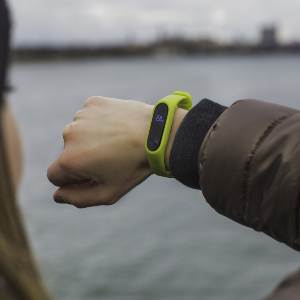Bibliometric study on scientific productivity in the use of smart bracelets

Accepted: 17 August 2023
HTML: 6
All claims expressed in this article are solely those of the authors and do not necessarily represent those of their affiliated organizations, or those of the publisher, the editors and the reviewers. Any product that may be evaluated in this article or claim that may be made by its manufacturer is not guaranteed or endorsed by the publisher.
Authors
In recent years, wearable sensors and mHealth applications are becoming an important part for recording and monitoring health parameters. The aim is to characterize bibli-ometric indicators on scientific productivity in the use of smart bracelets according to scientific journal, study topic and publication trend. A bibliometric study was per-formed. The data extracted from the articles were: year of publication, name of the journal, language of publication, country, type of study and subject matter. A total of 45 studies were identified (21 cross-sectional and 24 experimental), of which 43 were published in English, one in Spanish and one in German. A total of 32 scientific journals published eight research topics related to smartwatch use [active living with 17 studies (37.8%), followed by stress and anxiety with 7 studies (15.6%), nanogenerators (batteries) with 6 studies (13.3%), computing with 5 studies (11.1%), chronic diseases 4 studies (8.9%), COVID propagation 3 studies (6.7%), energy expenditure 2 studies (4.4%) and occupational health 1 study (2.2%)]. The journal Sensors (Basel) published the most articles in the last 6 years (n=7, 16%). The scientific productivity of both study types reflects a positive trend (cross-sectional studies R2= 0.82 and in experimental studies R2= 0.76). A total of 45 cross-sectional and experimental studies using smart-watches were verified in eight different study topics. The most investigated category was active living and the journal that published the highest number of articles was the journal Sensors (Basel).
How to Cite

This work is licensed under a Creative Commons Attribution-NonCommercial 4.0 International License.
PAGEPress has chosen to apply the Creative Commons Attribution NonCommercial 4.0 International License (CC BY-NC 4.0) to all manuscripts to be published.

 https://doi.org/10.4081/ejtm.2023.11572
https://doi.org/10.4081/ejtm.2023.11572




